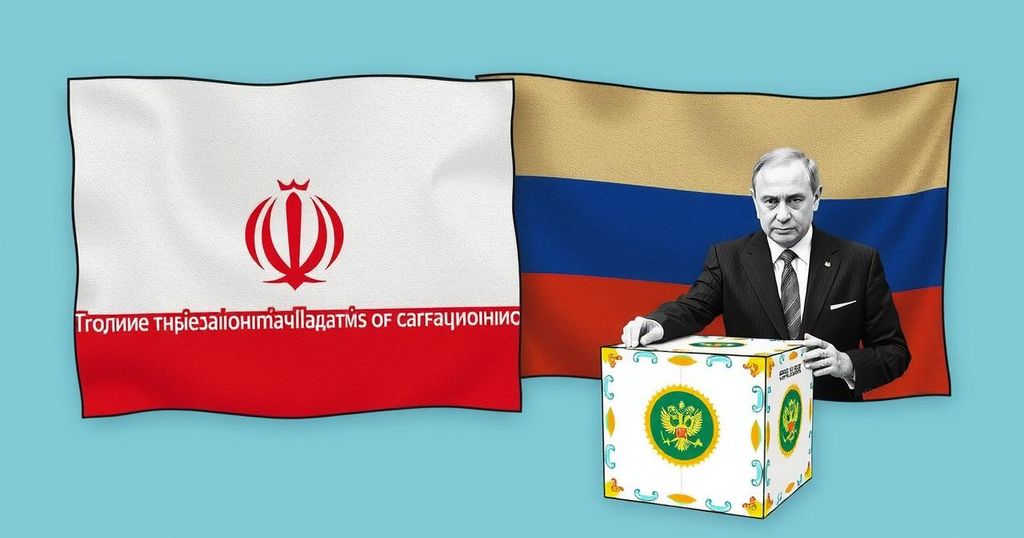The United States has sanctioned Iranian and Russian organizations for alleged electoral interference, specifically the Cognitive Design Production Center and the Center for Geopolitical Expertise. Focused on disinformation campaigns, these groups aimed to influence the 2024 US elections. Additionally, sanctions were placed on Russian judge Olesya Mendeleeva for the detention of Alexei Gorinov, stressing the US stance against foreign involvement in domestic affairs and support for democratic processes.
On Tuesday, the United States implemented sanctions on Iranian and Russian entities, accusing them of attempting to interfere in the American electoral process. Specifically targeted were the Cognitive Design Production Center, an offshoot of Iran’s Islamic Revolutionary Guard Corps (IRGC), and the Center for Geopolitical Expertise based in Moscow. Acting Under Secretary of the Treasury for Terrorism and Financial Intelligence, Bradley Smith, stated that both nations had practiced targeted disinformation to create division among the American populace.
The US Treasury Department characterized these groups as affiliates of the IRGC and the Russian Main Intelligence Directorate (GRU) and remarked that their activities were intended to inflame socio-political tensions and sway US voters. It was noted that the Cognitive Design Production Center had devised influence strategies to exacerbate divisions leading into the 2024 elections. Furthermore, the Center for Geopolitical Expertise was reportedly orchestrating the creation and dissemination of deep fake videos, as well as circulating misinformation regarding electoral candidates. With the sanctions imposed on this Center, its director, Valery Mikhaylovich Korovin, was also included in the sanctions list.
These newest sanctions follow previous actions taken against the IRGC, GRU, and various affiliated proxy groups. Earlier this year, the US government asserted that Iranian officials endeavored to undermine public trust in American democratic institutions through manipulative strategies, which included attempting to access individuals closely connected to presidential campaigns from both political parties. Additionally, on the same day, the Treasury Department announced sanctions against Russian judge Olesya Mendeleeva for her involvement in the imprisonment of former Moscow city councillor Alexei Gorinov, who had faced prosecution for his anti-war comments regarding Russia’s actions in Ukraine.
The actions taken by the United States against Iranian and Russian entities stem from ongoing concerns about foreign interference in domestic elections. The IRGC and GRU have a history of engaging in activities aimed at destabilizing Western democratic processes and manipulating public opinion. Both the US government and intelligence agencies have warned against the significant threat posed by disinformation campaigns orchestrated by foreign adversaries. This recent wave of sanctions reflects a broader strategy to mitigate threats to US electoral integrity as the nation approaches significant elections.
In summary, the United States has enacted sanctions against Iranian and Russian organizations in response to their purported efforts to disrupt the electoral integrity of the United States. Highlighted by the targeting of the Cognitive Design Production Center and the Center for Geopolitical Expertise, the US Treasury emphasized the necessity of safeguarding democratic institutions against foreign interference. This reinforces ongoing US efforts to combat disinformation and uphold electoral integrity.
Original Source: www.barrons.com






